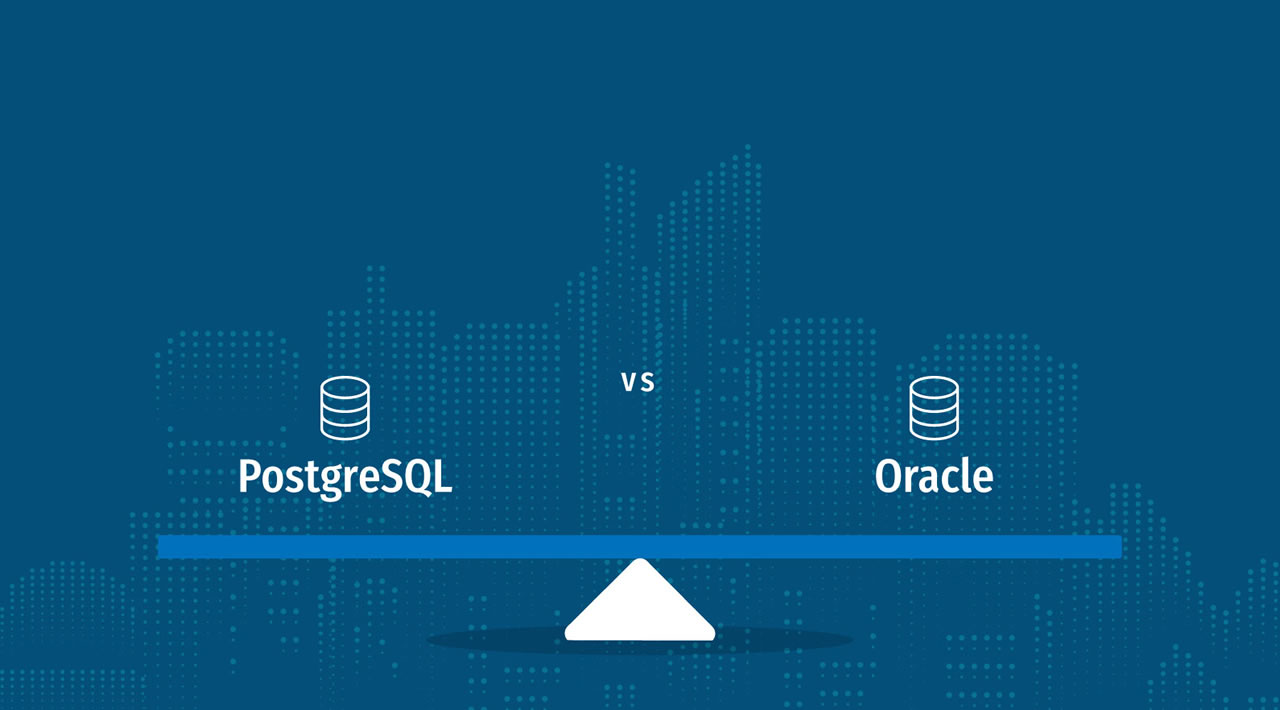Compare Oracle vs. PostgreSQL database — see the differences in these SQL database costs, features, and ease of use for developers and DBA’s.
Oracle Database is a commercial, proprietary multi-model database management system produced by Oracle Corporation, and the largest relational database management system (RDBMS) in the world. While Oracle remains the #1 database on the market, its popularity has steadily declined by over 18% since 2013. What’s causing this massive shift? The unstoppable rise of open source databases. One database in particular is causing a huge dent in Oracle’s market share – open source PostgreSQL. In this article, we compare Oracle vs. PostgreSQL, outlining the differences in these SQL database costs, features, and ease of use for both developers and database administrators (DBA’s) alike.
PostgreSQL is an open source object-relational database system with over 30 years of active development. Recognized as the fastest growing database by popularity, PostgreSQL was named the DBMS of the year in both 2018 and 2017 by DB-Engines, and continues to grow in popularity in 2020. In fact, PostgreSQL is so popular, 11.5% of PostgreSQL users are currently in the process of migrating to the RDBMS, according to the 2019 PostgreSQL Trends Report, an astounding percentage considering this is the 4th most popular database in the world. The report also analyzes the most popular database combinations with PostgreSQL, where 27.3% are currently leveraging Oracle Database within the same organization. This is largely attributed to the shift from commercial to open source, where organizations will develop new applications using an open source database while their legacy systems still remain on Oracle. These new applications are a great way for enterprise companies to test out PostgreSQL before migrating their entire infrastructure.
Now that we’ve covered the current state of affairs of our two databases, let’s compare the different features, ease of use, and costs of PostgreSQL vs. Oracle:
PostgreSQL vs. Oracle Costs
The #1 reason why PostgreSQL is used over another RDBMS is because of costs. The free open-source database is a great alternative to Oracle as it has no licensing costs, saving DBA’s and developers time right off the bat as they do not have to sit through lengthy licensing discussions and negotiations. You can find basically everything you need in the free community version, and any other requirements can be found in one of the hundreds of extensions developed by the community. Oracle, however, breaks down a lot of their features into separate licenses so you have to pay for those extra capabilities, and many of the advanced features are only available in their Enterprise Edition, such as rolling upgrades, advanced security, advanced replication and partitioning.
In this breakdown, we are only going to compare some key licensing and support costs between PostgreSQL and Oracle, as Oracle offers dozens of add-on features for extra costs. You can compare all of their license costs in their Oracle Technology Global Price List.

The $47,500 licensing costs for Oracle Enterprise Edition is only for one CPU core, that ultimately has to be multiplied with the actual number of cores on the physical server. Oracle does offer discounts on their pricing, where you can receive a 10% discount if you purchase online. There is also a wide network of Oracle partners available to help you negotiate a discount, typically ranging from 15%-30%, though larger discounts of up to 40%-60% are available for larger accounts.
PostgreSQL vs. Oracle Functionality
PostgreSQL functionality continues to evolve with the variety of tools and consultants available through the open source community, making it on par with nearly all aspects of Oracle Database with none of the cost. Oracle requires more complex ongoing administration, as all database configurations must evolve in conjunction with the data schemas and custom code. The extreme complexity also increases the risk of error which can lead to critical mistakes that cost more time and money to resolve, which is why it is a common best practice in Oracle to limit changes to only a couple times each year.
#sql #oracle #postgresql #postgres #dba
